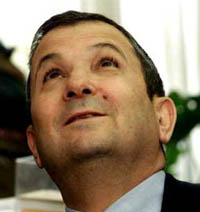|
|

|
|
|

|
Jewish World Review Nov. 16, 2000 / 18 Mar-Cheshvan, 5761
Chicago Diarist
http://www.jewishworldreview.com --
IN PAST TIMES of Mideast crisis, when Israel was
embattled or at war, the primary response of the American
Jewish community was to raise emergency funds for the
Jewish state. But this time is different.
While the leaders of American Jewry gathered here this week,
some 5,000 strong, for their largest annual gathering, and
expressed solidarity with Israel, there was no talk of a national
emergency fund-raising effort. That's because Israel is an
economic power in its own right and does not want to ask for
financial aid from diaspora Jewry. Equally important, this war --- the renewed intifada
of the last six weeks --- is not being fought on a battlefield as much as it is in the
media and in the perceptions of the international community.
What is required of us, the Israelis are telling American Jewish leaders now, is to go
out and make Israel's case to Washington, to the media, and to the American people.
But while the organized Jewish community is firmly behind Israel in its conflict with
the Palestinians, and eager to help, there is deep frustration at the highest levels of
Jewish leadership at Israel's mixed message.
At a private luncheon here on Monday, a few hours before Prime Minister Ehud Barak
was to address the thousands of delegates to the 69th annual General Assembly of
the United Jewish Communities, some two dozen top national Jewish leaders
pressed the Israeli leader to clarify what they said was a confusing double message
in regard to the recent violence.
On the one hand, Barak has been saying Yasir Arafat was the instigator of and
responsible for the bloodshed, and no longer a partner in peace; at the same time,
there are repeated calls for a return to the negotiating table to finalize a peace
agreement.
Which is it? he was asked politely.
Despite a bad case of laryngitis, he did his best to reiterate the need for insisting
violence cannot be rewarded while also asserting that peace talks must be resumed.
And neither at the luncheon, nor at his speech later that night, did he say what
different approach Israel might take at the talks, if and when they resume, based on
the lessons of the last six weeks.
"The Israelis are boxing us in," said one leader at the luncheon, who asked not to be
named. "If they want us to go out and demonize Yasir Arafat as a leader ready to
sacrifice Palestinian children to enhance his political position, that's fine. We're
prepared to do that. But then they can't invite him to Leah Rabin's funeral and maybe
go back to negotiating with him a few weeks from now as if nothing has happened.
We would lose all credibility."
American Jews aren't the only ones frustrated with Israel's stance. Natan Sharansky,
who resigned from the Barak cabinet because he felt the prime minister was
prepared to make too many concessions at Camp David this summer, told me "this
double message is the worst mistake this government makes." He says Israel's
message should be clear: "We want peace, and when you [the Palestinian leaders]
are ready, we'll talk peace." But for now, he continued, Israel must be prepared for
war and take the necessary steps --- economic and political --- to make the
Palestinians understand they will be the ones to suffer in a protracted conflict.
In future negotiations, he said, "reciprocity will be not be an illusion but a real policy."
Even ministers within Barak's own cabinet are speaking publicly about the difficulty of
presenting a confusing message. But Rabbi Michael Melchior, the minister for
diaspora Jewry, insisted it is necessary. "It's easier, and justified, to say that Arafat is
a crook and we have no peace partner and that we have to fight to survive," he said in
an interview. "But that approach is only effective if our hand is outstretched."
What does seem to have changed is that, should talks resume with Arafat --- not
likely in the near future --- Israel will insist on the Palestinians ending their
expressions of hatred of Israel and Jews in the Palestinian media, schools and
mosques. "You can't make peace while you're hating, and we need to be much more
clear and demanding on this point," Rabbi Melchior said.
Other forms of reciprocity are sure to emerge as well.
During the four-day conference, the delegates were bombarded with pleas as to how
they can help. They were encouraged by various speakers to demonstrate on Israel's
behalf, write letters to the editor and contact media outlets to point out examples of
anti-Israel bias, staunch the tourism crisis by visiting Israel, and, of course, make
aliyah.
Rabbi Melchior, though, said we should visit Israel not just to help tourism but to
comfort our Jewish brothers and sisters. "The people of Israel are sad," he said.
"There is a mood of mourning in the land, and we need you to come to give us
chizuk," or encouragement.
It was a gentle reminder that for all of the bravura heard from Israeli and American
Jewish leaders about asserting our clout and persevering, we are in the midst of a
tragedy --- not just for Israel but for all Jews --- and we must act with compassion as
well as savvy in our response, on as personal a level as
JWR contributor Gary Rosenblatt is editor and publisher of the
New York Jewish Week. Comment on this article by clicking here.
 Coping with Barak’s
Coping with Barak’s
mixed message
By Gary Rosenblatt
